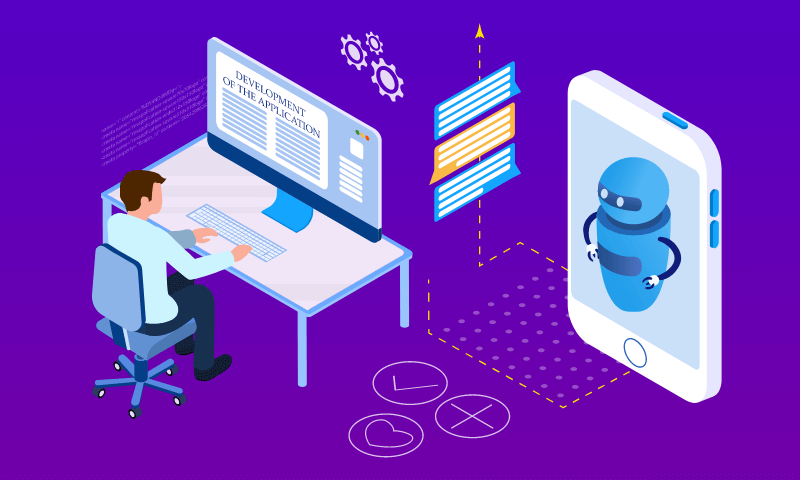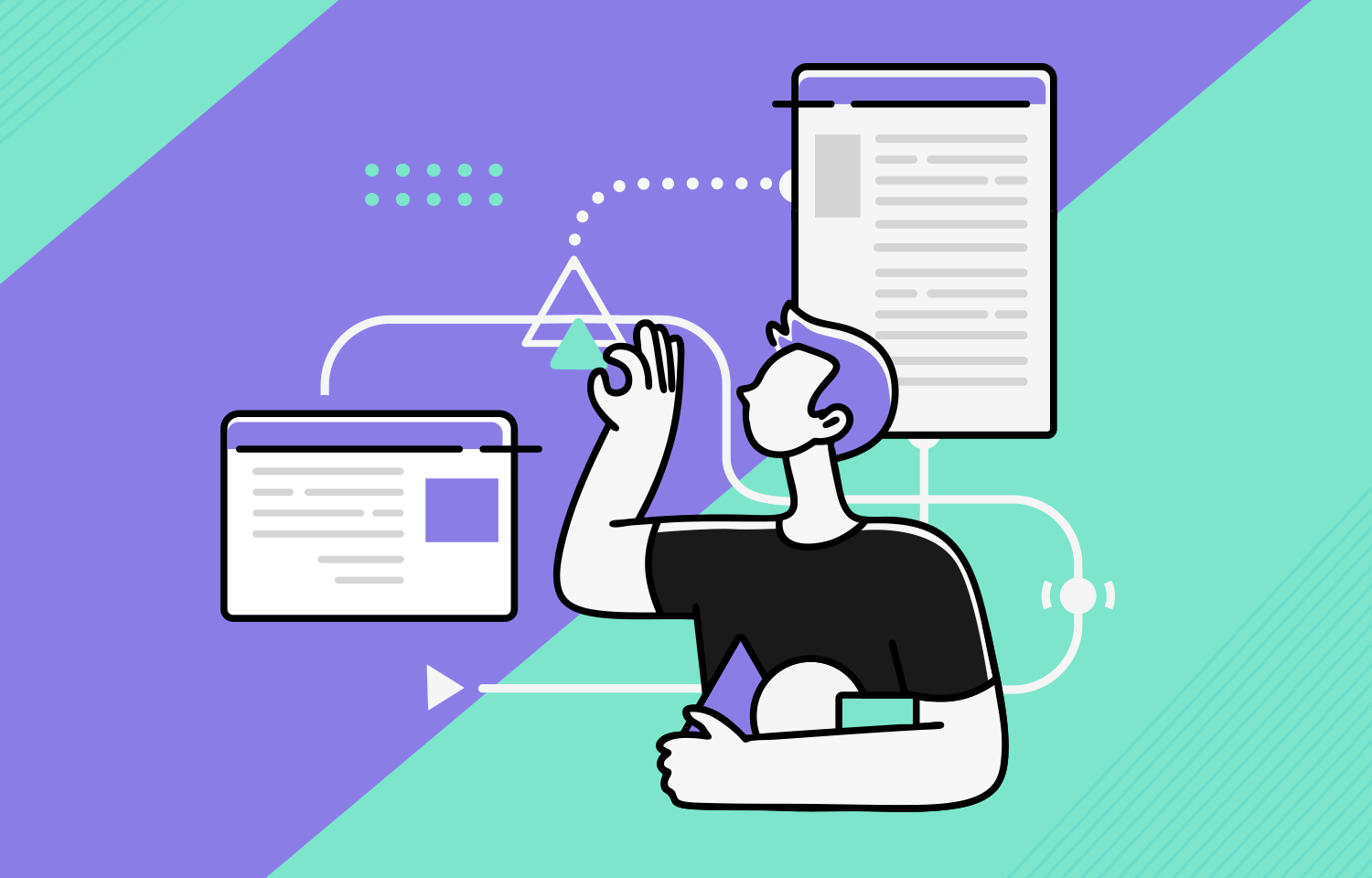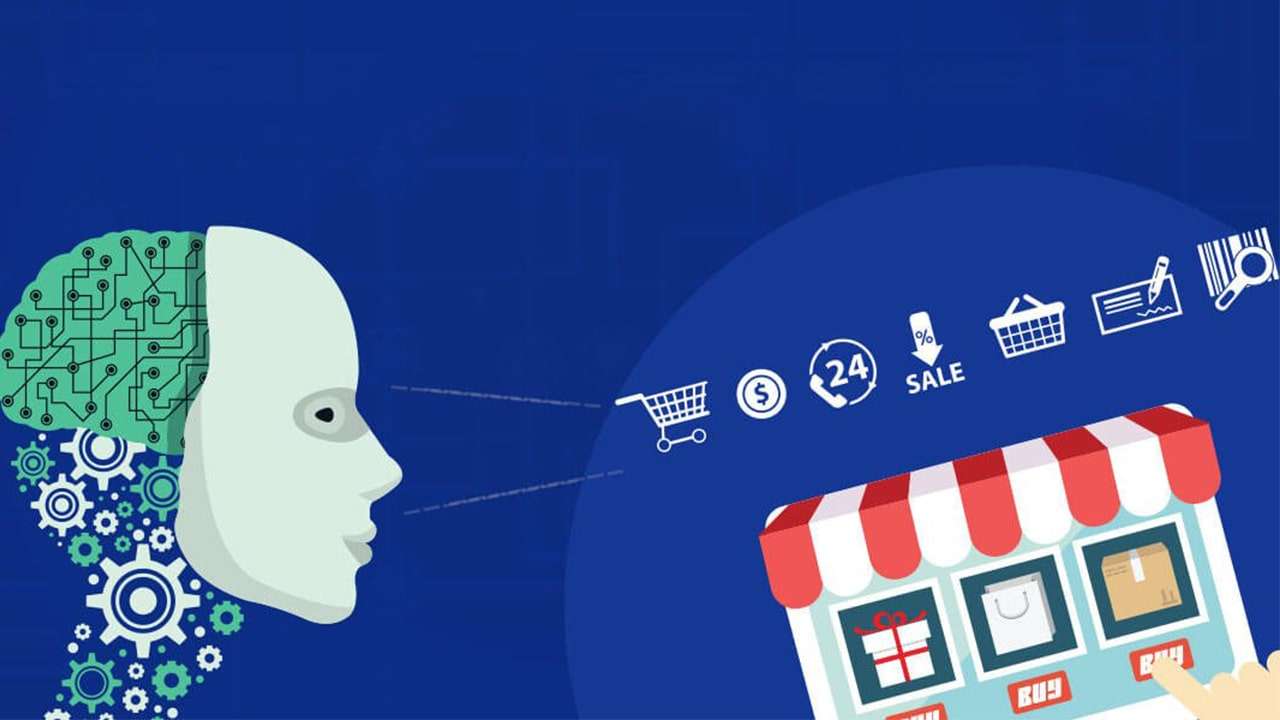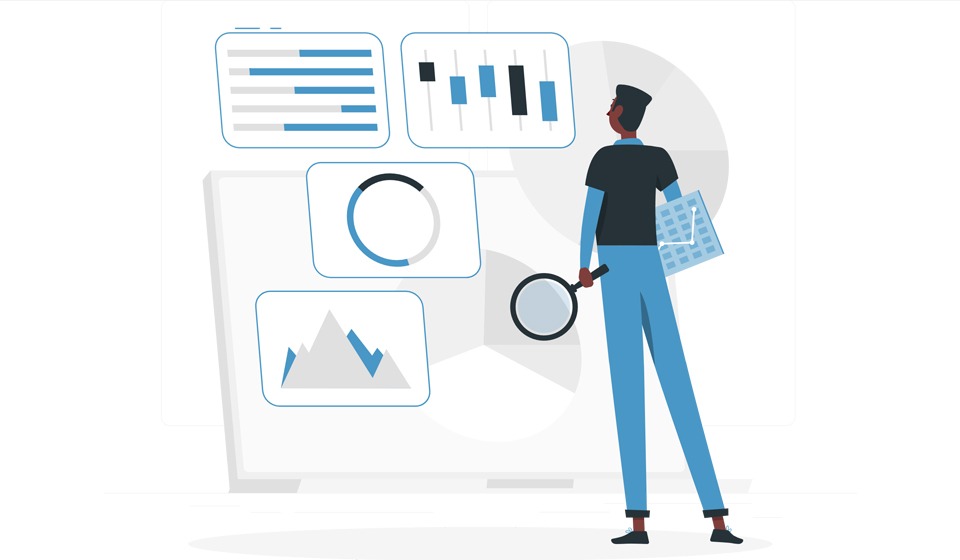Introduction
The digital landscape is changing faster than ever, and one of the biggest drivers of that change is artificial intelligence. AI in web development is not just a trend, it’s a revolutionary shift. In 2025 and beyond, automation and AI-powered tools are transforming how websites are created, personalized, and optimized, offering businesses unmatched speed, accuracy, and innovation.
What Is AI in Web Development?
AI in web development involves using machine learning, natural language processing, and intelligent automation tools throughout the design, coding, testing, and optimization processes.
It enables developers to:
- Generate code with AI-powered code assistants
- Analyze user behavior for smarter UI/UX
- Automate repetitive development tasks
- Use chatbots for instant user support and engagement
AI adds a new layer of intelligence to websites, making them more dynamic, intuitive, and efficient.
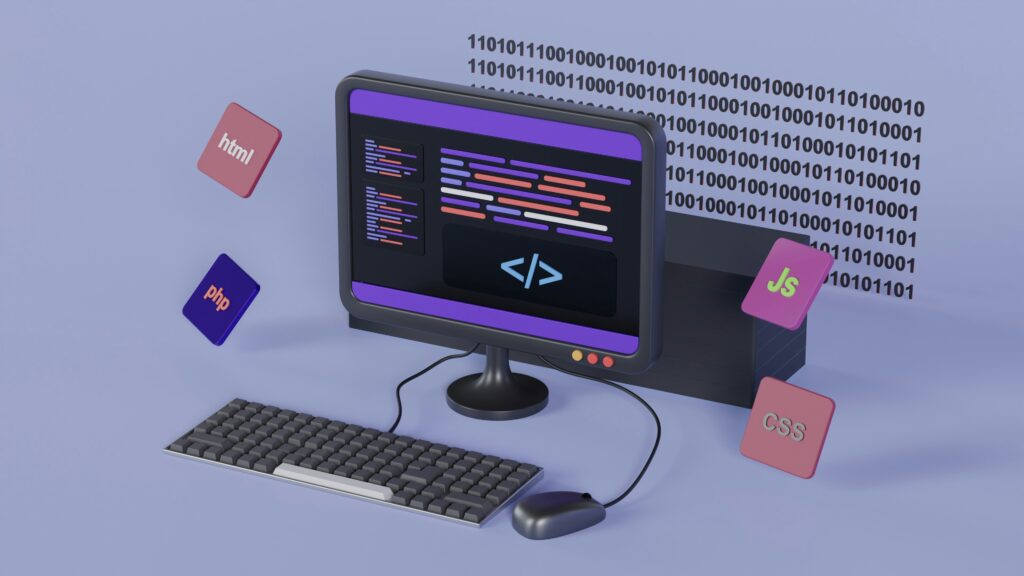
To dive deeper into what artificial intelligence encompasses, visit Google’s AI research hub
Benefits of AI in Web Development
Using AI in web development provides multiple advantages for both developers and businesses:
- Faster Development: AI tools generate code, test scripts, and even page layouts automatically.
- Enhanced User Experience: AI studies user behavior and adapts interfaces to match preferences.
- Smart SEO: Tools like Surfer SEO and Clearscope optimize content and meta elements in real time.
- Cost Savings: Automation reduces time and manual labor, cutting down costs significantly.
- 24/7 Support: Chatbots and virtual assistants can engage users anytime, improving service.
Top AI Tools for Web Developers
Here are some of the most powerful AI tools that are transforming the way websites are built and managed:
- GitHub Copilot – Auto-completes code intelligently based on context
- Uizard – Converts plain text into ready-made design prototypes
- Framer AI – Builds complete websites using text prompts
- ChatGPT API – Powers conversational bots for real-time user assistance
- Surfer SEO – Provides AI-driven recommendations for content and keyword placement
How Automation Is Reshaping Web Development
Automation, when combined with AI, drastically improves productivity across every stage of the web development workflow.
Key areas being automated include:
- Code deployment using CI/CD pipelines
- Form validation and input sanitization
- Content publishing and updates
- User segmentation for personalization
- Testing and error reporting
Tools like Netlify, Jenkins, and Zapier are widely used to build fully automated development pipelines.
Real-World Use Cases
AI is being used across industries to enhance the functionality and personalization of websites.
Common applications include:
- E-commerce: AI recommends products and handles customer queries.
- Blogs and News Sites: AI curates content based on trending topics.
- Personal Portfolios: Chatbots handle scheduling and portfolio navigation.
- SaaS Platforms: AI generates reports and user insights in real time.
You can explore more in this McKinsey AI adoption report
AI in Frontend and Backend Development
AI supports both the frontend (user interface) and backend (server-side logic) of web development.
In Frontend Development:
- Suggests smart layouts and color schemes
- Provides accessibility enhancements like voice-to-command
- Automatically personalizes UI for different users
In Backend Development:
- Improves database query performance with AI optimization
- Detects and corrects bugs before they’re pushed live
- Predicts user traffic and scales server resources automatically
Challenges and Limitations
Despite its strengths, there are still challenges when using AI in web development:
- Privacy and Data Protection: AI needs data to function, but misuse can lead to security concerns.
- Over-Reliance on Tools: Developers may depend too heavily on AI, reducing hands-on problem-solving.
- Creativity Gaps: AI tools often mimic existing designs and lack true innovation.
- Bias in Training Data: Poorly trained AI models can produce skewed or inaccurate results.
A thoughtful and strategic approach is required to make the most of AI without falling into these traps.
The Impact of AI on Web Accessibility
AI in Web Development is not only making websites smarter but also more inclusive. Web accessibility ensures that all users, including those with disabilities, can interact with your site effectively.
Here’s how AI is improving accessibility:
- Voice Navigation: AI enables voice-controlled interfaces for users who cannot use keyboards or mice.
- Image Recognition: AI tools like Microsoft Azure Computer Vision generate automatic image alt text, improving screen reader experiences.
- Real-Time Captioning: AI transcribes videos and audio on websites to help users with hearing impairments.
- Color Contrast Adjustments: AI detects poor contrast in designs and suggests WCAG-compliant color combinations.

AI in Web Development for Small Businesses
Small and medium-sized businesses (SMBs) often face time, budget, and staffing limitations. Thankfully, AI in Web Development levels the playing field by offering tools that automate much of the development and marketing process.
Key benefits for SMBs:
- AI Website Builders like Wix ADI generate professional websites in minutes.
- Smart Content Generators help create blog posts, product descriptions, and email marketing campaigns.
- Customer Support Chatbots reduce the need for 24/7 human support.
- SEO Tools guide businesses on how to improve rankings without hiring an expert.
Integrating AI with CMS Platforms
Many modern CMS platforms are now integrating AI to enhance content creation, SEO, and workflow automation.
Here’s how AI in Web Development works with popular CMSs:
- WordPress: Tools like Rank Math and Bertha.ai offer AI content creation and SEO suggestions directly within the WordPress dashboard.
- Shopify: AI apps optimize product titles, automate inventory tracking, and personalize the shopping experience.
- Drupal and Joomla: Use AI modules for language translation, chatbot integration, and intelligent content tagging.
Ethical Considerations of AI in Web Development
As powerful as AI is, it’s essential to implement it ethically. Users are increasingly aware of how their data is used and expect transparency.
Here are ethical points to consider:
- Transparency: Disclose when users are interacting with AI tools (e.g., chatbots).
- Data Privacy: Follow GDPR and data protection laws when training AI models.
- Bias Mitigation: AI tools must be trained on diverse datasets to avoid discriminatory behavior.
- User Consent: Always request permission before collecting or analyzing user data with AI.
How to Get Started with AI in Web Development
If you’re new to AI in Web Development, getting started may seem overwhelming. But you don’t need to master machine learning to start benefiting today.
Here’s a simple step-by-step approach:
- Define your goals – Are you trying to reduce workload, enhance UX, or boost SEO?
- Choose the right tools – Start with AI tools like Framer AI, Surfer SEO, or ChatGPT.
- Integrate gradually – Begin with low-risk areas like content creation or automated testing.
- Measure and optimize – Use analytics to monitor AI performance and make adjustments.
AI in Web Development for Ecommerce Success
Ecommerce is one of the biggest beneficiaries of AI in Web Development. In 2025, AI is helping online retailers personalize shopping experiences, automate customer service, and boost conversions.

Key AI applications in ecommerce:
- Personalized Product Recommendations based on purchase history and behavior
- AI Chatbots to answer questions instantly and reduce cart abandonment
- Dynamic Pricing Models powered by machine learning
- Inventory Forecasting using predictive analytics
AI-Powered A/B Testing and Conversion Optimization
Traditionally, A/B testing is time-consuming, but with AI in Web Development, it’s now real-time and data-driven.
How AI transforms conversion testing:
- Predictive A/B Testing: AI anticipates which variation will perform better using user behavior data.
- Multivariate Testing at Scale: Test dozens of design/content changes simultaneously.
- Real-Time User Adaptation: Automatically show high-performing variants to users.
- Smart Heatmaps: AI tracks where users click and how they navigate.
How AI Enhances Website Security
Website security is a top concern in 2025. With AI in Web Development, sites can now detect, prevent, and respond to threats more intelligently.
AI-driven security features:
- Anomaly Detection: AI flags suspicious user behavior in real time.
- Fraud Detection: E-commerce and finance sites use AI to prevent scams.
- Bot Management: AI distinguishes between good and bad bots.
- Auto Response Systems: AI systems block threats and notify admins instantly.
Role of Natural Language Processing (NLP) in Web Development
A major component of AI in Web Development is NLP, which powers smarter interactions between websites and users.
NLP use cases on websites:
- Semantic Search: AI understands user intent, not just keywords.
- Voice Interfaces: Websites with voice commands for accessibility and UX.
- Content Summarization: AI scans and shortens long pages for better readability.
- Auto Tagging and Categorization of blog content for better SEO and structure.
AI for Visual Design and Branding
AI tools are transforming design, helping developers and marketers produce brand-consistent visual assets.
How AI helps in visual branding:
- Logo Generators like Looka use AI to design logos instantly.
- Color Palette Suggestions based on emotional psychology and user persona
- Image Enhancement using AI-powered editing tools
- Brand Style Consistency through design pattern recognition
How AI in Web Development Supports Content Marketing
AI in Web Development and content marketing go hand-in-hand. Smart tools can now generate, audit, and optimize content that ranks.
Content marketing tasks powered by AI:
- Topic Ideation: Tools like BuzzSumo{:rel=”dofollow”} suggest trending content ideas.
- AI Writing Assistants: Tools like Jasper and ChatGPT generate blog outlines and drafts.
- Readability Scoring: AI grades content and suggests improvements.
- Content Gap Analysis: Compare your content with competitors to find missing SEO topics.
Integrating AI with Progressive Web Apps (PWAs)
Progressive Web Apps (PWAs) are becoming the standard in web development and AI supercharges their performance.
Benefits of combining PWAs with AI:
- Offline Personalization: AI learns from offline interactions and syncs later.
- Smart Push Notifications: AI analyzes engagement history to send better-timed alerts.
- Predictive Loading: AI pre-loads likely content the user will access next.
- Voice & Gesture Recognition: AI-driven input methods for accessibility
Future Trends Beyond 2025
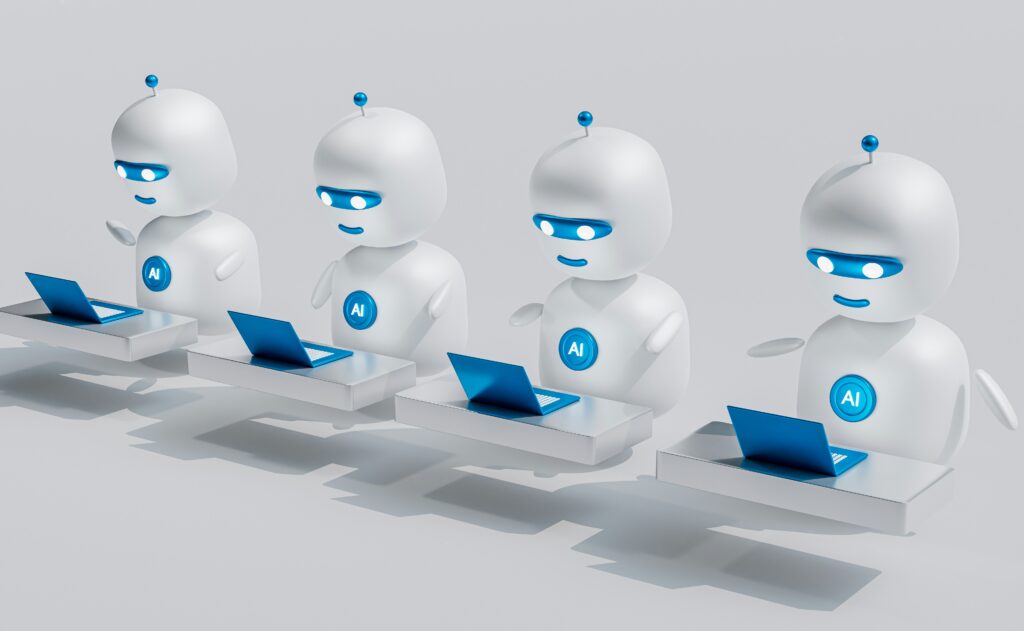
The future of web development with AI looks even more promising. Expect to see:
- Voice-controlled development platforms
- AR-enhanced interfaces powered by AI
- AI-generated animations and microinteractions
- Hyper-personalized website experiences for each user
- AI-driven low-code and no-code platforms for non-developers
Looking to stay ahead of design trends too? Don’t miss our expert guide on Smart Web Application Design: 10 UX Tips for Powerful User Experience
Conclusion
AI in web development is more than just a trend, it’s a game changer. As we move further into 2025, embracing AI-powered tools and automation will be essential for businesses aiming to stay competitive. Whether it’s streamlining workflows, enhancing user experience, or optimizing websites for SEO and performance, AI is the future of web development.
By combining human creativity with AI’s intelligence, developers can now build smarter, faster, and more scalable websites than ever before.
